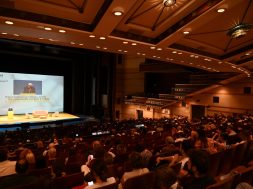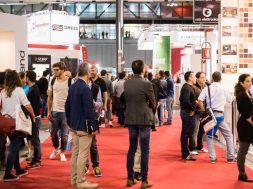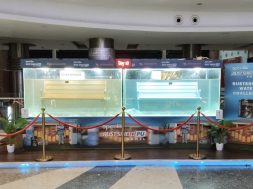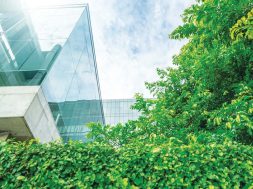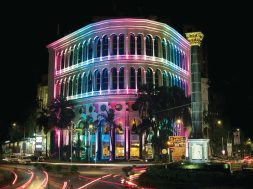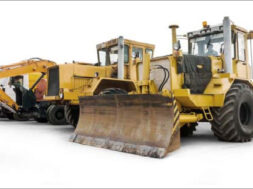Metro rail have undoubtedly caught the popular imagination of India, and nobody can deny the benefits and special features the system carries
Metro rail signifies that the city has ‘developed’ and is ‘modern’. India, being a developing country, is not lagging behind in this transit system. The metro fever is catching up in Indian cities and more metro rail systems are being built.
Growing cities and population causes growing traffic, shaking the transport network of country. Metros are considered as the best solution to heavy road traffic congestion. Metro rails break the barrier of time and cost, giving a hassle-free experience.
Apart from traffic congestion, air pollution and road accidents are a major concern. Hence, metros are becoming an integral part of urban master plan of the city.
India’s first metro railway was introduced in Kolkata in 1973; this was also Asia’s fifth subway project. The success of the Kolkata and Delhi Metro encouraged the opening of similar mass rapid transport system in other cities of India. A handful of metro projects are in the pipeline in cities like Hyderabad, Kochi and Jaipur. Let’s take a look.
Mumbai MetroMumbai, being the commercial capital of India, is also among the largest cities in the world with growing population. Mumbai’s public transport system is overburdened and challenged with an increasing demand. Nearly 80 per cent of population relies on public transport. With population on the rise, Mumbai is still struggling to cope with transport issues. Metro is the answer to these issues. The ` 2,356-crore project is expected to considerably trim down city’s transport woes, by ferrying up to 25,000 passengers in a single direction during peak hours.
The project was not only a mammoth task but also involved lateral thinking to execute plans along the elevated corridor. Mumbai Metro promises to offer several special features never before used in mass commuting in the country. World-class system with AFC (Automatic Fare Collection) gates for entry and exit which will save time of commuters and handle large number of passengers.
The Mumbai Metro’s first corridor got through the final stages of construction, with clearances awaited from statutory authorities. Construction work is complete in all the stations from Versova to Airport. Lifts, escalators, power supply, electrical and mechanical segments have been commissioned. The trial run was conducted successfully over the 11.4-km stretch.
The Mumbai Metro One Private Ltd. led by Reliance Infrastructure (RInfra) has revised the deadline for the Versova-Andheri-Ghatkopar corridor several times. The 11.4-km route along with VAG corridor is almost completed and expected to commence run soon.
Bangalore MetroBangalore Metro also known as Namma Metro is started in 2011. Bangalore Metro Rail Corporation Ltd. (BMRCL), a joint venture between the Government of India and the Government of Karnataka, is responsible for its implementation. The first stretch between Byappanahalli and M.G. Road was inaugurated on October 20, 2011.
BMRCL is still working on the first phase of the 42-km network at a cost of ` 11,600 crore, of which around 7 km is operational. It hopes to complete the entire stretch by first quarter of 2015 and is positive about attaining 5 lakh passengers per day. BMRCL has also started the initial work into conceptualising Phase 3 of over 100 km which would be in concentric circles.BRCL has begun conducting oscillation trials on Reach 3 and 3 A of Namma Metro, putting the 10.30-km line in a position operations on the much awaited stretch in March.
Reach 3 and 3A between Swastik Circle and Yeshwanthpur and Peenya is expected to ferry 45,000 passengers per day.
Kochi Metro Classified as the Tier-II city, Kochi has also jumped on the bandwagon. After facing many hurdles, finally the construction of the Kochi Metro Rail began in 2013. Kochi Metro Rail Ltd. (KMRL) plans to build a cost-effective metro for Kochi, ensuring the modern features available.
75 per cent of Kochi Metro rail pillars and 50 per cent of the work on metro stations would be completed in 2014, making it the busiest working season for DMRC.
The reconstruction of the road over bridge created numerous challenges like shifting of vendors under the bridge and utilities and diversion of traffic. The five introductory works undertaken would help save a year in the implementation period of Kochi Metro.
The total project cost of the metro rail has been pegged at ` 5,537 crore, and the KMRL is looking for an external borrowing of ` 2,170 crore for it. As per the principal advisor of DMRC, E Sreedharan, the project is expected to be completed by June 2016.
Hyderabad MetroIn the absence of a comfortable, efficient public transportation system, the traffic and transportation scenario of Hyderabad is a matter of concern. To improve the situation, the Government of Andhra Pradesh (GoAP) approved development of Hyderabad Metro Rail (MRTS) project in three high-density traffic corridors of the city spanning across 72 km in Phase I. The dream of this mass transit system is coming to reality as the work for Hyderabad Metro Rail is on full swing.
The project is being implemented with the latest metro rail technology CBTC (Communication Based Train Control), which is first in India. Hyderabad Metro Rail is a fully automated rapid transit system built on PPP mode. The metro rail system under construction is a completely elevated system, generally run in the central median of the road.
The project is considered to be the world’s largest project under public-private partnership with investments of over ` 17,000 crore.
The Phase I of the project which will cover 72 km is expected to be operational by March 2015. Hyderabad Metro Rail will have user-friendly stations strategically located every kilometre to make commute across the city comfortable, safe and quick.
Jaipur MetroJaipur is another Tier-II city to get the swanky mode of transportation. With the growing economy and inadequate public transport services, Metro rail system in Jaipur is essential. The decision to start the Metro service with 10 trains was made after analysing the traffic statics and estimation of commuters expected at various stations.
The project is planned along two corridors: East-West Corridor and North-South Corridor. The East-West Corridor from Mansarovar to Badi Chaupar, with a total length of 12.067 km is being executed as Phase I of the project. The North-South Corridor from Ambabari to Sitapura with a total length of 32.099 km will be taken up as Phase II of the project.
In its first phase, the Jaipur Metro Rail Corporation (JMRC) will procure 10 trains; each train set will have four coaches. So far, the DMRC has transported only seven trains for now.
Jaipur Metro is most likely to hit the tracks by 2014. The project will not only cause reduction in fuel consumption through reduction in number of buses and private vehicles but will also reduce vehicle operating cost and travel time of commuters.
ConclusionMetro systems are more reliable, comfortable and safer in comparison to road-based transport systems. Metro railways have undoubtedly caught the popular imagination of India, and nobody can deny the benefits and special features the system carries.
Metro rails will not only improve city`s transport system but it will also help India soar in urban infrastructure. Metro is the final answer to India`s growing population and all traffic related problems. Common man can now look forward to more comfortable, safe rides.
Construction for Mumbai Metro-3 to start in January 2015
The construction for the ambitious project of 32.5 Km long Colaba-Bandra-SEEPZ underground metro corridor is likely to commence from January 2015. Mumbai Metro Rail Corporation (MMRCL) plans to issue detailed tenders for Metro-3 by July 2014 and award the contract to the successful bidder by October 2014. “Pre-qualification bids for the first underground metro in the country`s financial capital have evoked good response from all the consortiums showing great interest in Mumbai`s first underground metro. Presently we feel that the detailed tenders can be issued by July 2014,” said Sanjay Sethi, Managing Director, MMRCL and Additional Metropolitan Commissioner, MMRDA. The MMRCL is also confident of awarding contract by October, 2014 for the project to be undertaken on Engineering, Procurement and Construction (EPC) basis. “We have tied up the funding for this project from Japan International Co-operation Agency (JICA), Government of India and Government of Maharashtra through MMRDA,” said Mr Sethi. JICA will be funding 57 per cent of the total project cost of Rs 23,136 crore. The Government of India and Government of Maharashtra-through MMRDA will be bear the rest of the cost. The GoI will provide 50 per cent of Central Taxes as Sub-debt while the balance 50 per cent shall be borne by the State Government. The GoM may also get a few exemptions from various local taxes – details of which are being worked out at present,” informed Mr Sethi. He further added that Rs. 777 crore will also be borne by the Mumbai International Airport Ltd (MIAL), since the metro will pass through the MIAL areas. The Colaba-Seepz metro will comprise of 27 stations; out of which 26 will be underground and one at Aarey Colony, Goregaon, will be at grade (ground level). Underground construction will be at a depth of 15 to 25 meters on an average. The construction of 32.5 km Metro will be carried out in 7 packages at 14 different locations. The 27 stations on the Colaba-SEEPZ Metro corridor are – Cuffe Parade, Vidhan Bhavan, Churchgate, Hutatma Chowk, CST Metro, Kalbadevi, Girgaon, Grant Road, Mumbai Central, Mahalaxmi Metro, Science Museum, Acharya Atre Chowk, Worli, Siddhi Vinayak, Dadar Metro, Shitaladevi Temple, Dharavi, BKC Metro, Vidya Nagari, Santacruz, Chhatrapati Shivaji Airport (Domestic), Sahar Road, Chhatrapati Shivaji International Airport, Marol Naka, MIDC, SEEPZ and Aarey Colony.
HCC bags Rs. 300 cr DMRC contractHindustan Construction Company (HCC) Ltd has been awarded an Rs. 300 crore contract by Delhi Metro Rail Corporation Ltd (DMRC) for design and construction of 1.54-km long twin tunnel on Dwarka-Najafgarh metro corridor of phase III of Delhi Metro.
This is the third contract for underground metro received by HCC since October 2012 under the phase III development of Delhi Metro aggregating to Rs. 1,539 crore.
The twin tunnels will be constructed using Shield Tunnel Boring Machine. The contract also includes construction of one of the biggest underground station namely Municipal Corporation which is 290 meters long and 30 meters in width. The station will be built at depth of 18 meters. The work will be completed in 36 months.
Prior to this order, the company has received two contracts under the Phase III of Metro development for package CC30 on the Mukundpur-Yamuna Vihar corridor in October 2012 and package CC34 on Janakpuri West-Kalindi Kunj Corridor in February 2013. The company has already deployed 5 Tunnel Boring Machines for these two packages.
HCC has already completed three contracts under phase I and phase II of the Delhi Metro. The first package MC1A was for construction of 4.142-km long tunnel from Vishwavidyalaya Station to ISBT station on Yellow Line. The project was completed eight months ahead of schedule in December 2004. The next two packages were part of the Airport Express Line which include C1 a 2.2 km long twin bored tunnel and a 1.3-km cut and cover tunnel from New Delhi Station to Rajiv Chowk and C6: 2.6km long NATM tunnel between Talkatora area to Buddha Jayanti Park. The tunnelling depth below the Rajiv Chowk Metro station at 44m was the deepest ever for the Delhi Metropolitan Region, going below two existing lines. C1 was completed in July 2010 whereas C6 was completed in February 2011.
IL&FS wins ` 300-cr Kolkata Metro projectIL&FS Engineering and Construction has won a Rs. 300-crore contract for elevated metro stations in Kolkata Metro Line in West Bengal by Rail Vikas Nigam Ltd (RVNL).
“IL&FS Engineering and Construction company has been awarded a contract by RVNL, Kolkata for a value of Rs. 299.76 crore towards construction of seven elevated metro stations from sub CBD-1 to Titumir in New Garia-Airport Metro Corridor of Kolkata Metro Line in state of West Bengal,” the company said in a BSE filing.
The project has to be completed in three years from the date of issue of letter of acceptance.
12
Cookie Consent
We use cookies to personalize your experience. By continuing to visit this website you agree to our Terms & Conditions, Privacy Policy and Cookie Policy.
